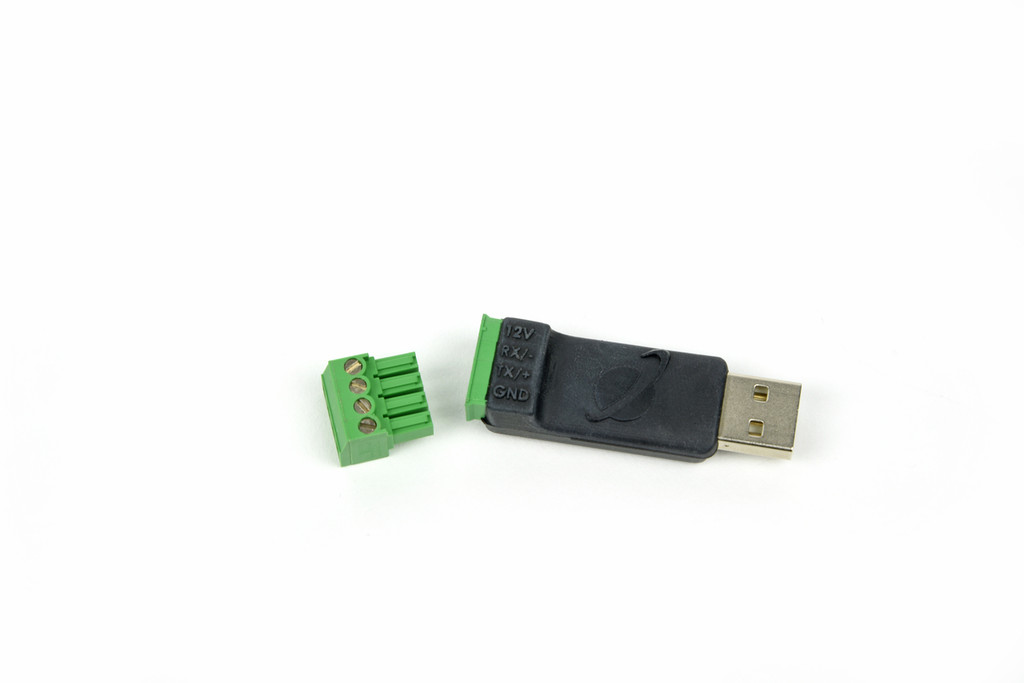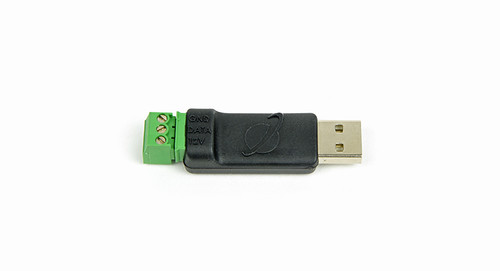The AC-422 enables easy programming of any Modbus sensor by simply connecting the sensor to a computer’s USB port.
Configuration of the sensor can be done using any terminal program or Apogee Instruments DSI software.
One side of the AC-422 features a USB connection for plugging into a computer. The other side of the AC-422 has +12 V out, GND, and Modbus data channels for connection to any standard Modbus sensor (for proper operation, please connect the ground wire first).
- Easily configure and take sample measurements from any Modbus sensor directly with a computer and GUI
- No data logger needed
- Growing library of sensors with commands explained
- Sensor power provided via USB
Applications:
- Modbus sensor configuration or programming
- Modbus sensor troubleshooting
- Field use
- Research applications
- Classroom labs
FOR MORE PRODUCT INFORMATION, CHECK OUT THESE LINKS
• Software
Current Stock:
Input Voltage Requirement
5 V USB
Operating Environment
-45 to 80 C; 0 to 100 % relative humidity (non-condensing)













